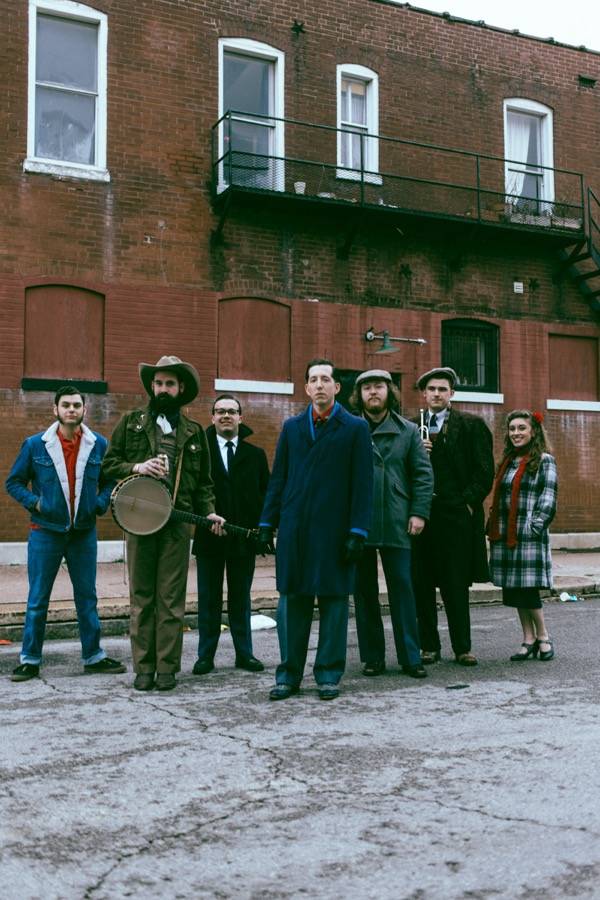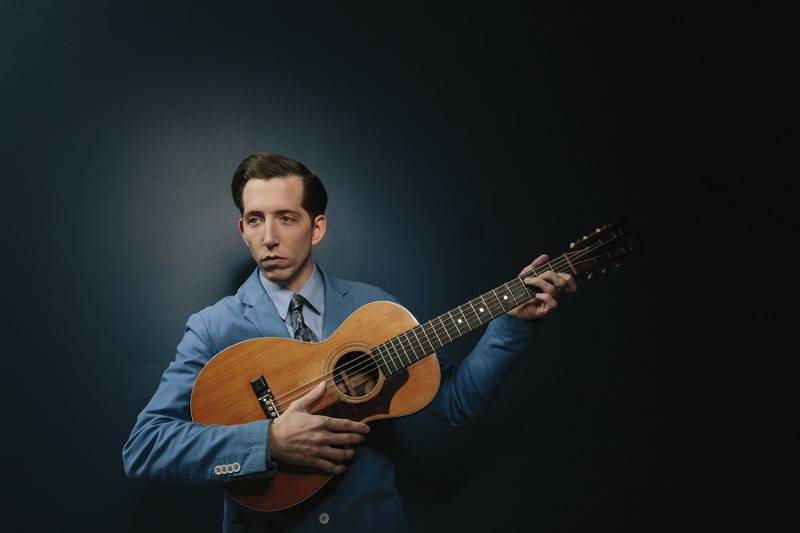Pokey LaFarge is one of us.
He’s the oldest of five kids, grew up in a too small house for a too big family in the Midwestern state of Illinois, listened to his grandparent’s music around the house, rebelled against his parents with weed and women in his teenage years, didn’t fit quite in during high school, played baseball around the state when he was young and hungry, wanted to go pro, came back to reality, felt lost and out of place, had trouble finding himself.
Then he did something that none of us have done. The day after he graduated high school, LaFarge packed a bag and hitchhiked out of his small hometown of Bloomington and headed west.
“At that point, I knew I was put on earth to do something in a creative way,” LaFarge said. “Baseball was my number one up until I was 15. Then I started my writing. Creative writing, fiction, poetry, stories, that started to take over. That with my newfound love for music, marijuana and women… Baseball kind of took a backseat.”
With new creative outputs came creative inputs. Lafarge started to read beat writers like Kerouac, Gary Snyder and Ginsberg as well classics like Steinbeck, Twain and Faulkner. On the road, he was able to make the connection between these legendary writers and larger than life musicians like Jimmie Rodgers and Muddy Waters.
“They embodied an America that is long gone from us but is still very much in our foundation,” he said. “That’s what I found so interesting about them, is that they had no doubt. They just had to go out because of that quench; that search for the undying American spirit. And I think that’s in me and what keeps me travelling.”

LaFarge hit the road to find himself, to find his calling that he was so sure he had, to get out of a town like so many of ours. Where the people who stay for a little stay for while and where the people who get out, stay out. But what was so important to LaFarge during his journey, then and now, was to never forget where he came from.
“The Midwest isn’t known for being a place with a whole lot of creativity,” he said. “But it’s a foundation. All of the traveling I’ve done has helped me put it into a proper concept. As I get older, I see how much of my upbringing with my friends and family – especially my mother and father – is inside of me. Especially thinking about how much I pushed back as a youngster.”
He left to write. He left to travel. He left to see the country with his own eyes, to realize what he was here for and to grow up among strangers and strange circumstances. Eventually, he found himself playing street corners in Asheville, NC, met the right people, met some wrong ones, continued to write, chronicled his journeys like the writers before him did. With a guitar and a melody in his head, he began to write songs and survived long enough to writes songs for a living.
From all the traveling and the songs written, records recorded, shows played, he found himself on his way back home to the Rust Belt.
“I think it’s important to not be ashamed of where you’re from,” he said. “That’s why it’s kind of hard to leave, you know? I feel a responsibility to help out and to not only tell my story but our story.”
Growing up directly centered between Chicago and St. Louis, there were comparisons to be made about the two cities, some good and some bad, and overall generalization of his roots and heritage that he has no shame of being proud of.
“A lot of the cities in the Rust Belt are so similar,” he said. “I wish they weren’t so fucking violent but that’s sort of an empty hope if you’re not willing to look at the source of the problem which I think is education and a lack of emphasis on that. Putting more of an emphasis on urban sprawl and not on getting people jobs, you have people taking their money out to the county when the heart of the city is literally rotting away. That’s the realest connection I would want to make.”
He sighs a little over the phone, contemplating the weight of the subject. Instead of the mishandling of the people in these cities, he steers the conversation to the people themselves.
“But people got heart man,” he said. “People around here have got heart and I think that’s what has kept me here. It’s real. People are from here. It’s not some happy land like Los Angeles or a model runway like New York City is. Or even Nashville, which is still trying to reinvent itself and figure itself out. We actually have real issues that are at the heart of the problems in this country.”
LaFarge generated popular success with the release of his self-titled album with the help of Jack White’s Third Man Records in 2013. Since then, he has had more to live up to. He has more people listening, more people showing up to concerts, more people sitting in dinky living rooms playing his 1930s-era inspired music on record players around the country and around the world. Does he feel more pressure now than before?
“There’s always pressure,” he said. “I always put it on myself. I’ve always benefitted from adding certain things to my life that allow me to have some sort of clarity. I’m worrying less about the future; therefore I’m not anxious. I’m living in the moment and I think my songwriting is benefitting from that.”
For LaFarge’s latest record, Something in the Water, the majority of the songs came from journal entries from the road. Kerouac would call them sketches: simple observations of a time and place around him, jotted down in fevering detail with pen and paper. The style of prose came easier to him; the lack of form matched the rolling-on-forever highways of the States.
“When I get home, during that first week, I write a lot because the inspiration is still lingering from all of those experiences that I gained on the road,” he said. “I find that the clarity is the most important thing for procuring efficiency in my work.”
The clarity that he found with the latest batch of songs was a new and welcoming feeling for the experienced musician.
“Songs can be reminders of the progression you’re making as a human being and also as an artist,” he said. “I definitely feel a responsibility to myself because I’m essentially writing my legacy. If I’m in touch with myself, my growth, my past and my present, my experiences will give me all the colors and all the paints and all the inspiration I need to take that story to the people. As a songwriter, I want to remain completely open for change. Whatever comes out comes out. It will be a natural evolution and it will be me. I’m finally finding my voice. Took me 32 years, go figure.”
Pokey LaFarge will be joined by Margo and the Pricetags and Bones Jugs N Harmony on Wednesday, November 11th at the Highdive. Doors open at 6:30 p.m.
Photos by Joshua Black Wilkins.








